The Cinderella Economy Takes Flight in Britain
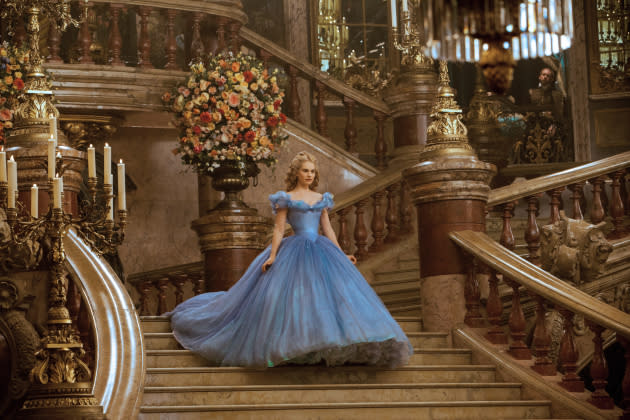
LONDON — The circular economy is whirling ever faster in Britain where the big luxury retailers are making more space for resellers, luxury rental and repair — and charity shop merchandise — alongside their freshly delivered designer collections.
Mixing up the old, new, borrowed (and occasionally blue) is no longer the preserve of brides, but of anyone strolling through the doors — or around the websites — of Selfridges, Harrods, Harvey Nichols and Liberty this fall.
More from WWD
According to Mintel’s report, Fashion and Sustainability, U.K. 2021, more people have rented fashion items this year than last, “with the pandemic helping to accelerate the demand for a more circular fashion economy. Initiatives such as rental services, reselling and recycling fashion items, are appealing to eco-conscious shoppers.”
On Sept. 6, Selfridges, which has been at the forefront of circular sales, is bringing back its Oxfam pop-up shop, curated by the British editor and stylist Bay Garnett, for an encore — and for a longer period of time.
Garnett is stocking the space with pieces by Jean-Paul Gaultier, Yves Saint Laurent and Ossie Clark in addition to ’70s vintage, denim, tweed and sheepskin pieces. Garnett has also slipped a selection of bags, hats and blankets from Oxfam’s warehouse and charity shops into the mix.
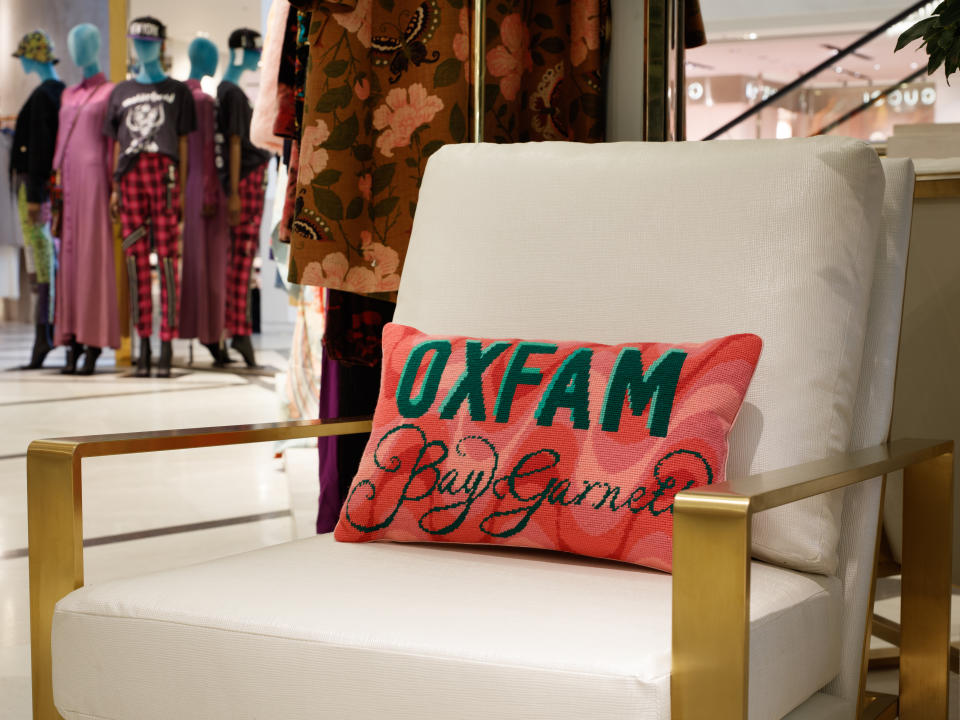
Image Courtesy of Selfridges
This year’s pop-up will be open for three months on the third floor of Selfridges Oxford Street. The space is larger and has been done up in high-gloss white with neon green carpeting, glass cases and an ultra-luxe feel. Garnett has also tapped a series of other creatives to curate rails of clothing during the three-month run.
Oxfam, which was founded in Oxford and is now headquartered in Nairobi, Kenya, is an umbrella group for a variety of charities working to alleviate global poverty. It is also one of the largest retailers in the U.K. via its network of charity shops selling clothing, books and vinyl records, among other items.
To mark the opening, James Lacey of Pointless Illustrations has designed a collection of one-off T-shirts. Other T-shirts feature an image of Sienna Miller wearing clothes from the pop-up. All of the T-shirts have been created with existing Oxfam stock.
The shop is part of Oxfam’s annual secondhand September campaign, and dovetails with Selfridges’ growing enthusiasm for rental and resale services, part of its Project Earth sustainability commitments.
Last month, at the Corner Shop, Selfridges opened Resellfridges: The Wedding, a five-week pop-up stocking pre-loved designer dresses and accessories, upcycled men’s wear suits and vintage wedding rings. It is also offering wedding rental services.
Sebastian Manes, Selfridges’ executive buying and merchandising director, said, “This year more than ever, our customers are being more considered in how they live and shop and weddings are no exception. We continue to explore circular models through Project Earth.”
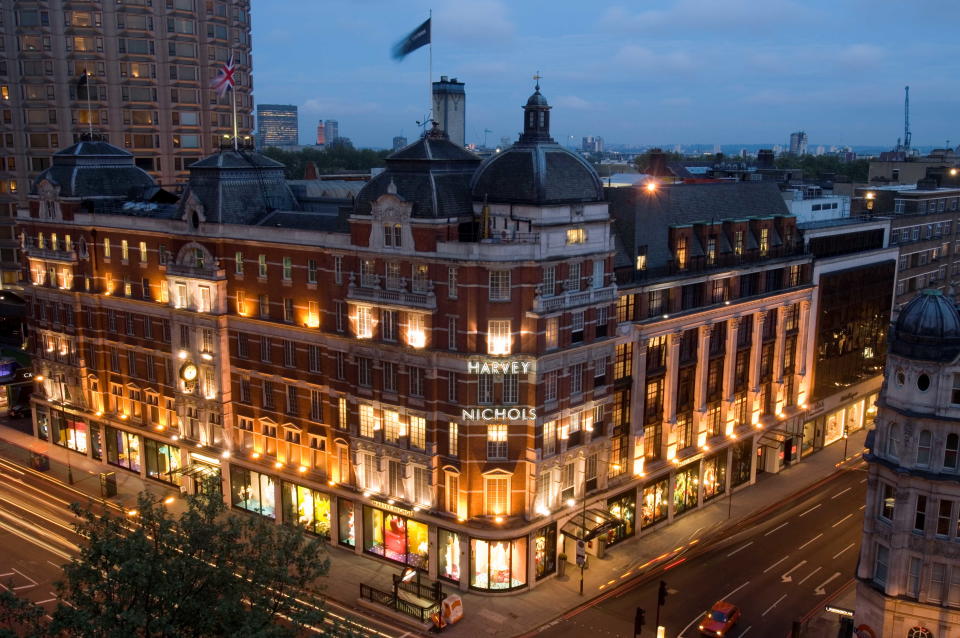
Image Courtesy of Harvey Nichols
In Knightsbridge, Harvey Nichols has this week made way for Reflaunt, a tech platform that works directly with fashion retailers. Reflaunt says it has 50 million shoppers across a network of 25 international marketplaces.
Harvey Nichols said the partnership allows its customers to resell any luxury piece in their wardrobe including fashion, accessories and watches and earn back up to 80 percent of the original price in the form of a bank transfer, or Harvey Nichols vouchers.
Customers drop off items at one of the dedicated collection points in Harvey Nichols stores in the U.K. and online, while London-based customers can choose to have their pieces collected by the Reflaunt Concierge. Reflaunt authenticates, prices and uploads the product imagery onto its network of secondhand marketplaces.
From September, Harvey Nichols said customers outside the U.K. will be able to take advantage of the service, with complimentary shipping. Later in the year, Reflaunt said it plans to launch globally in key international cities in Europe and Asia.
Harrods, meanwhile, has partnered with MyWardrobeHQ, the rental and resale site that counts Carrie Johnson, Britain’s first lady, as a customer. She even rented her wedding dress from the site earlier this year.
Harrods is offering a host of evening and formal items in-store and online with people able to rent looks ranging from feathered gowns by Huishan Zhang to Rotate’s colorful, sculptural minidresses.
MyWardrobeHQ and Harrods have said they want customers to experiment, knowing that, like Cinderella, they’ll need return the goods after a fixed period of time — specifically after four, seven, 10 or 14 days.
The pop-up, which will be open until early October, is located on Harrods fourth floor and as a Harrods edit on the MyWardrobeHQ website. Customers also have the option to purchase the pieces.
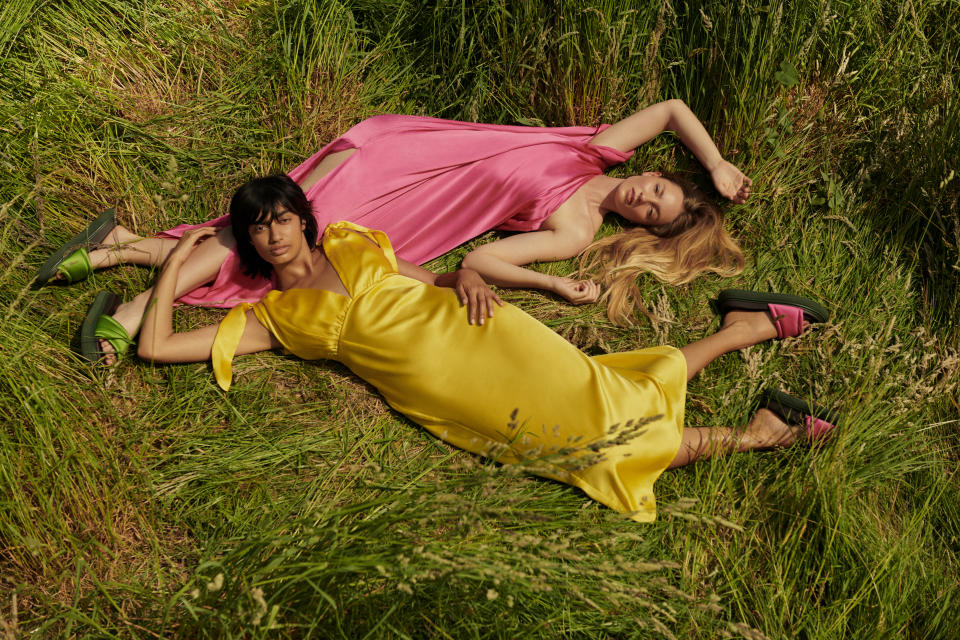
Image Courtesy of MWHQ
For almost a year, Harrods has also been working with The Restory, which repairs luxury leather accessories and clothing. The store also offers the services of an in-house cobbler, tailors and seamsters in a bid to help customers extend the life of their wardrobes and to think in terms of long-term investment purchases.
In a related move, Harrods did away with its plastic carrier bags as of Sept. 1, and is using paper ones instead. The new bags are 100 percent recyclable, sustainably sourced and made from 40 percent recycled materials. They also carry the FSC, or Forest Stewardship Council, mark.
Harrods said it’s also aiming to cut its consumption of carrier bags by 50 percent from pre-pandemic levels. It has set targets for staff, and will remove all carrier bags from the Harrods Food Hall, and some other departments, later this year and will ask customers to purchase a jute reusable bag.
Michael Ward, managing director of Harrods, said, “As proud as we are to see customers leaving our store with the iconic Harrods green bag, going forward we want to see as few of the bags as possible.” He noted that more than 4 million branded Harrods bags leave the shop floor each year.
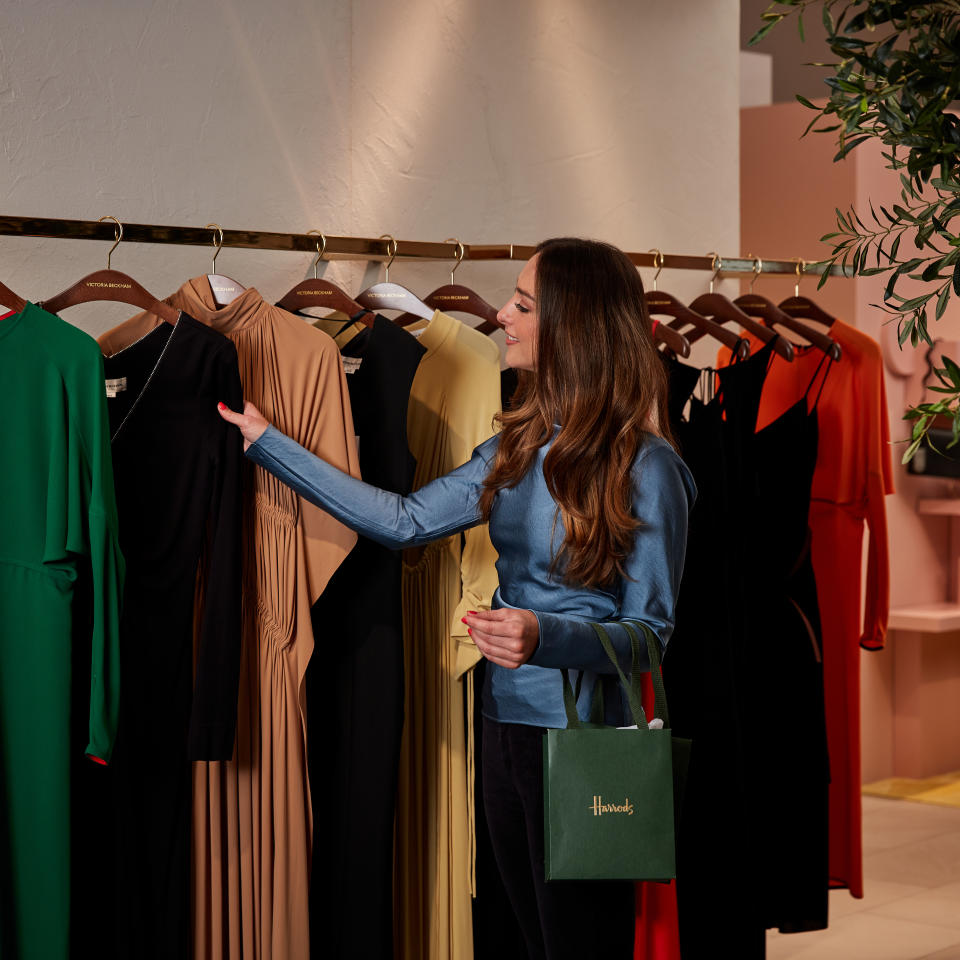
Joel Knight
The store has also eliminated all plastic packaging from customer deliveries and has pledged to remove 100 percent of single-use virgin plastic packaging from across the business.
Liberty, too, has hopped on the circular circuit. It previously hosted MyWardrobeHQ in-store and also offers dedicated designer vintage departments on the second, ground and lower ground floors. Items on offer include Chanel handbags, Louis Vuitton luggage and vintage wedding dresses.
The store said it will also source “your must-have piece,” as well as provide an alteration service for handbags, jewelry, hats and specialist garment cleaning.
Sign up for WWD's Newsletter. For the latest news, follow us on Twitter, Facebook, and Instagram.